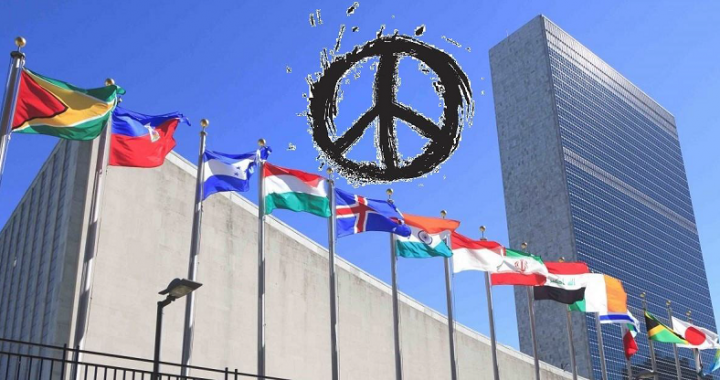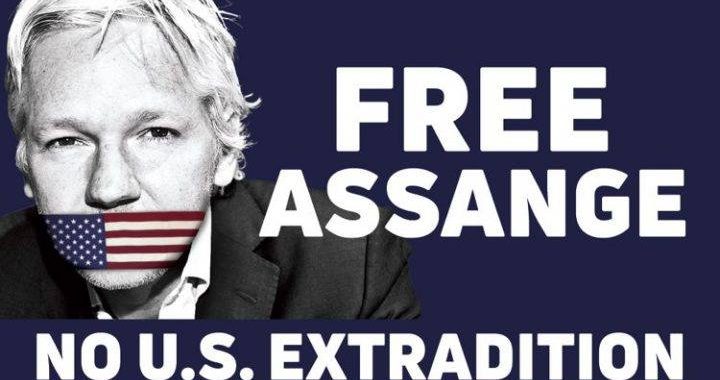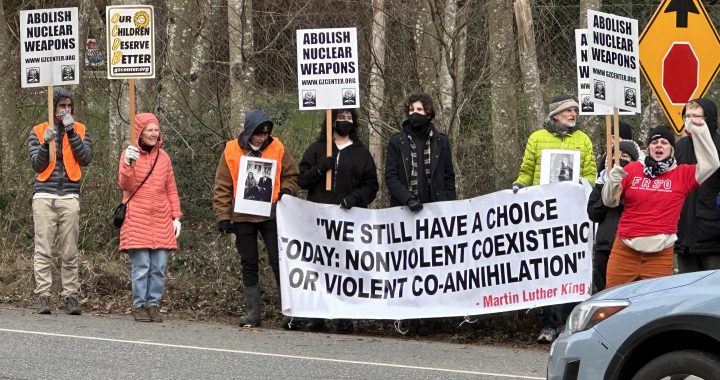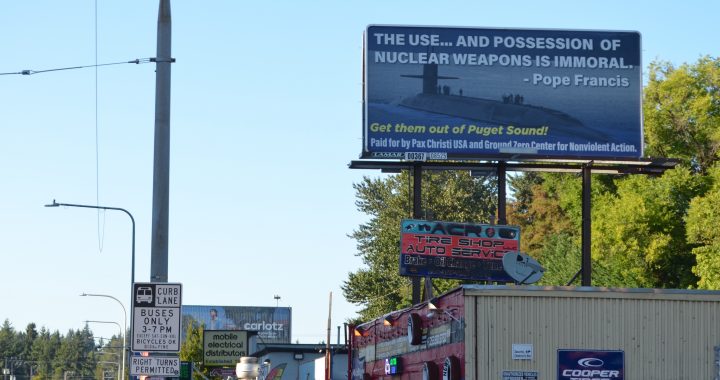This morning in New York, at the end of its final session, the United Nations Conference to Negotiate a Legally Binding Instrument to Prohibit Nuclear Weapons adopted the Treaty on the Prohibition of Nuclear Weapons.
Unlike other treaties, including the Treaty on the Non-Proliferation of Nuclear Weapons, commonly known as the Non-Proliferation Treaty or NPT, this is the first true multilateral nuclear disarmament treaty negotiated since the dawn of the nuclear age.
The final vote was 122 to adopt, 1 against (Netherlands), and 1 abstention (Singapore). The Netherlands was the only NATO country to participate in the negotiations. All of the world’s nine nuclear-armed countries boycotted the negotiations (BIG surprise).
The Treaty will be open for signature by any member state starting on Sept. 20 during the annual General Assembly and would enter into legal force 90 days after being ratified by at least 50 countries.
In a Joint Statement – demonstrating the epitome of doublespeak – released after the treaty was adopted, the United States, Britain and France said, “We do not intend to sign, ratify or ever become party to it.” The statement demonstrates how the nuclear-armed nations still cling to the archaic and tenuous doctrine of nuclear deterrence: “Accession to the ban Treaty is incompatible with the policy of nuclear deterrence, which has been essential to keeping the peace in Europe and North Asia for over 70 years.”
“The theory only works if you are ready to use nuclear weapons, otherwise the other side will call your bluff,” said Beatrice Fihn, executive director of the International Campaign to Abolish Nuclear Weapons (ICAN). Deterrence, she added, is also “based on a perception that leaders are rational and sane.”
As expected, the statement invoked the Democratic People’s Republic of Korea (DPRK) as a reason for disregarding the Treaty and cited how it “risks undermining the existing international security architecture which contributes to the maintenance of international peace and security,” while disregarding the fact that historical and current policies (particularly of the United States) have created and are exacerbating the current nuclear crisis with the DPRK.
The final irony in the Joint Statement is the three nations’ alleged commitment to the NPT: “We reiterate in this regard our continued commitment to the Treaty on the Non-Proliferation of Nuclear Weapons (NPT) and reaffirm our determination to safeguard and further promote its authority, universality and effectiveness.”
The disarmament community never expected that any nuclear-armed country would sign the ban treaty initially. Instead, we hope that the treaty’s widespread acceptance elsewhere will eventually increase the public pressure and stigma on those harboring and threatening to use such omnicidal weapons, and make holdouts reconsider their positions. It will be a long haul!
There is historical precedent in previous treaties that banned biological and chemical arms, land mines and cluster bombs, demonstrating how weapons once regarded as acceptable are now widely, if not universally, reviled. “While the treaty itself will not immediately eliminate any nuclear weapons, the treaty can, over time, further delegitimize nuclear weapons and strengthen the legal and political norm against their use,” said Daryl G. Kimball, executive director of the Arms Control Association.
The treaty adopted today will outlaw the use and threat of use, as well as testing, development, production, possession, transfer and stationing in a different country. It also provides a pathway for nuclear-armed nations that choose to join, with a process for destroying nuclear stockpiles and enforcing a nation’s pledge to remain free of nuclear weapons.
Los Alamos Study Group Director Greg Mello said: “It is difficult to overstate the accomplishment represented by this Treaty. It makes a sea-change in nuclear affairs, the effect of which will be felt only over time and with further yeoman efforts. It is a real milestone accomplishment in support of human civilization, an historic step in bringing the age of nuclear terror to an end.”
Mello also reminded us of the phenomenal efforts and co-leadership that went into bringing about this historic Treaty: “The Treaty could not have been possible without the leadership of, and engagement by, literally hundreds of civil society organizations, ably coordinated by the International Campaign to Abolish Nuclear Weapons (ICAN), underpinned by the untiring work of the Reaching Critical Will (RCW) program of the Women’s International League of Peace and Freedom (WILPF). The ban campaign, the fruition of which we see today, really began and was co-led throughout by the International Physicians for the Prevention of Nuclear War (IPPNW). Dozens of other organizations could be mentioned, without which this Treaty could never have been produced.”
The day after the adoption of this landmark Treaty marks the 21st anniversary of the historic International Court of Justice (ICJ) Advisory Opinion on the Legality of Nuclear Weapons. In that opinion the Court concluded “that the threat or use of nuclear weapons would generally be contrary to the rules of international law applicable in armed conflict, and in particular the principles and rules of humanitarian law.”
Today begins a new era of stigmatization of the continued preparation by the nuclear-armed nations that threatens humanity on an existential level. It will require a massive global effort by parliamentarians, NGO’s, and civil society, all working together, to bring a huge, continuous groundswell of pressure on the nuclear armed nations to not just “disarm,” but to create a paradigm shift away from violent conflict and toward mutual security assurances among nations. The framework and functioning of the United Nations must be respected and strengthened. Nonviolence MUST become the order of the day (and of the new era).
I invite each and every fellow traveler on this small, fragile, blue planet we all share to join in this struggle for a better world, a world with hope for future generations. For now I leave you with the wisdom of Dr. Martin Luther King, Jr on the subject:
More recently I have come to see the need for the method of nonviolence in international relations. Although I was not yet convinced of its efficacy in conflicts between nations, I felt that while war could never be a positive good, it could serve as a negative good by preventing the spread and growth of an evil force. War, horrible as it is, might be preferable to surrender to a totalitarian system. But now I believe that the potential destructiveness of modern weapons totally rules out the possibility of war ever again achieving a negative good. If we assume that mankind has a right to survive then we must find an alternative to war and destruction. “Don’t ever let anyone pull you so low as to hate them. We must use the weapon of love. We must have the compassion and understanding for those who hate us. We must realize so many people are taught to hate us that they are not totally responsible for their hate. But we stand in life at midnight; we are always on the threshold of a new dawn.”
–Martin Luther King, Jr., “Pilgrimage to Nonviolence,” Strength to Love, 13 April 1960
Photo courtesy of Unfold Zero




